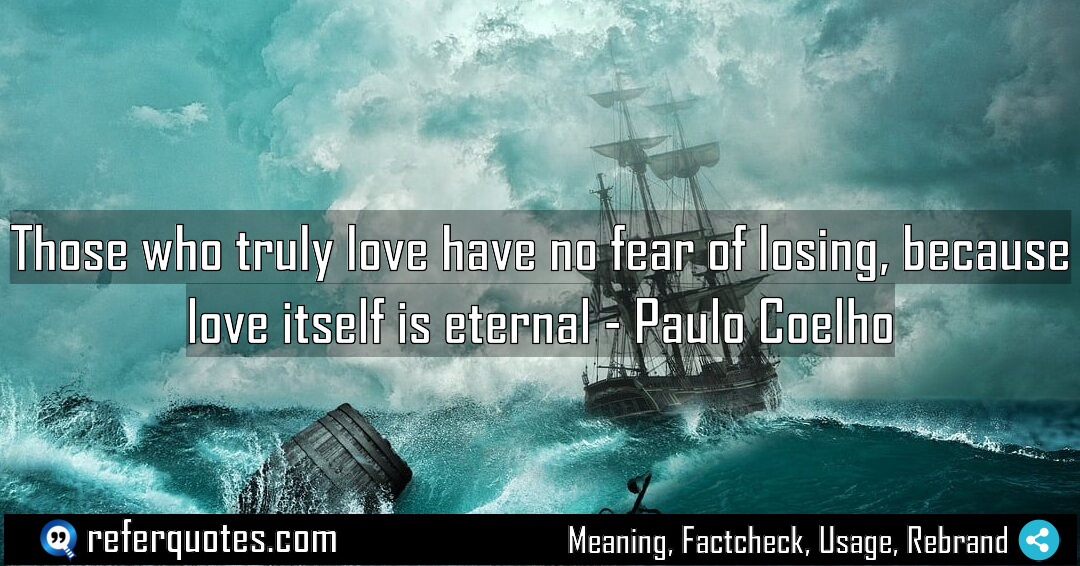Those who truly love have no fear of losing… it sounds like a beautiful ideal, right? But when you really sit with it, you realize it’s less about romance and more about a fundamental shift in how we view connection. It’s about moving from a mindset of possession to one of participation.
Share Image Quote:Table of Contents
Meaning
At its core, this quote suggests that authentic love is not a transaction or a possession to be secured, but an eternal, self-sufficient state of being. The fear of loss simply doesn’t compute when you’re operating from this place.
Explanation
Okay, let’s break this down. Think about the love we usually experience—it’s often conditional, right? We love because… because they make us feel good, because we have a history, because we’re afraid of being alone. That kind of love is inherently fragile. It’s like holding water in your hands; you’re constantly terrified it will slip through your fingers.
But Coelho is pointing to something different. He’s talking about a love that is a state of grace, not a negotiated agreement. When you love from that place, the person becomes a channel for the love itself, not the sole source. So even if the form of the relationship changes—someone leaves, or even passes away—the love you experienced and shared doesn’t just vanish. It was real. It happened. And that reality is eternal.
The fear of losing, then, is actually a fear of losing a source of validation, comfort, or identity. When you realize you are the source, that you are capable of generating and experiencing that love irrespective of the other person’s presence, the fear just… dissipates. It’s a profound inner security.
Quote Summary
| Context | Attributes |
|---|---|
| Original Language | Portuguese (369) |
| Category | Love (89) |
| Topics | fear (92), love general (86) |
| Literary Style | poetic (635) |
| Emotion / Mood | tender (51) |
| Overall Quote Score | 85 (305) |
Origin & Factcheck
This is correctly attributed to Paulo Coelho and comes from his 1996 novel, The Fifth Mountain. The book is set in the 9th century BC and follows the biblical prophet Elijah, so this quote emerges from a narrative deeply concerned with faith, destiny, and surrendering to a divine plan—themes that perfectly frame this idea of eternal, fearless love.
Attribution Summary
| Context | Attributes |
|---|---|
| Author | Paulo Coelho (368) |
| Source Type | Book (4032) |
| Source/Book Name | The Fifth Mountain (35) |
| Origin Timeperiod | Contemporary (1615) |
| Original Language | Portuguese (369) |
| Authenticity | Verified (4032) |
Author Bio
Paulo Coelho(1947) is a world acclaimed novelist known for his writings which covers spirituality with underlying human emotion with a profound storytelling. His transformative pilgrimage along the Camino de Santiago inspired his breakthrough book, The Pilgrimage which is soon followed by The Alchemist< which went on to become the best seller. Through mystical narratives and introspective style, Paulo Coelho even today inspires millions of people who are seeking meaning and purpose in their life
Official Website |Facebook | Instagram | YouTube |
Where is this quotation located?
| Quotation | Those who truly love have no fear of losing, because love itself is eternal |
| Book Details | Publication Year: 1996 (Brazil); ISBN: 978-0-06-112209-5; Latest Edition: HarperCollins 2009; 256 pages. |
| Where is it? | Approximate page 151, Chapter: The Eternal Love |
